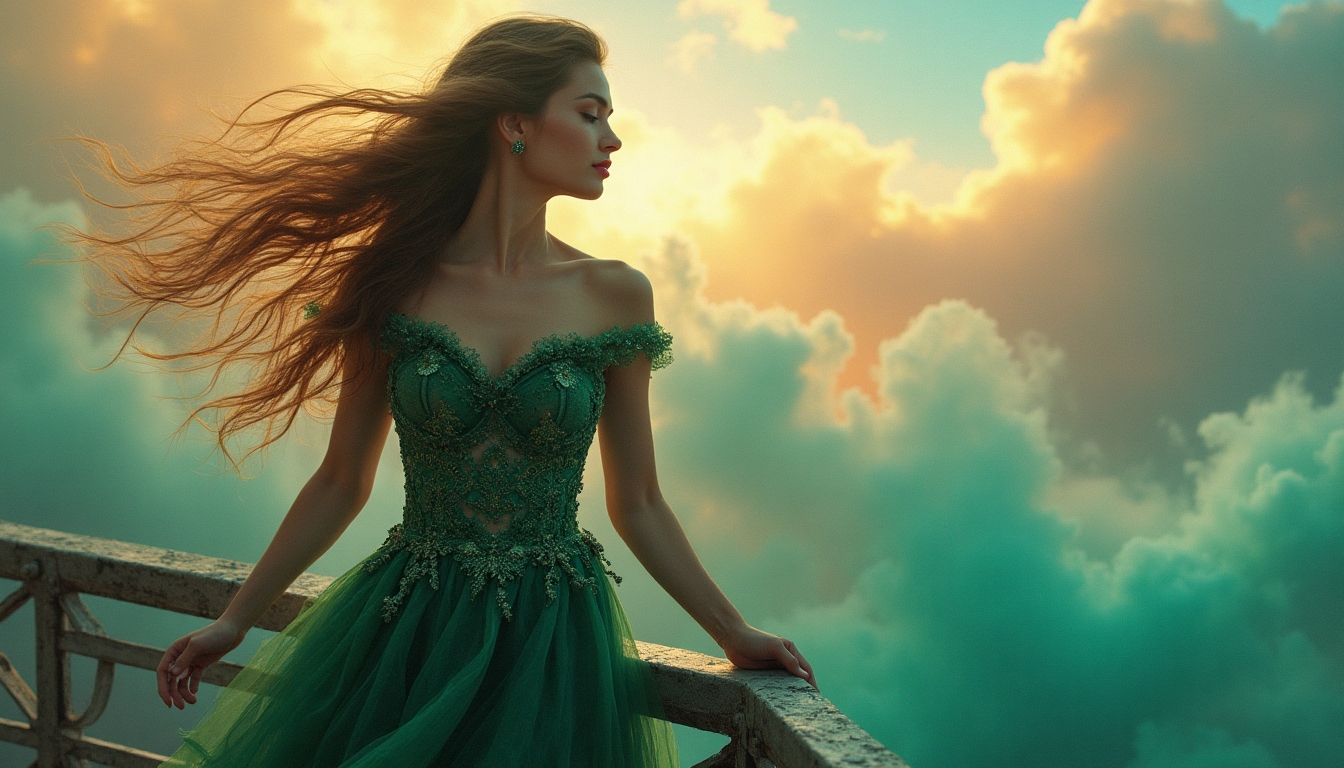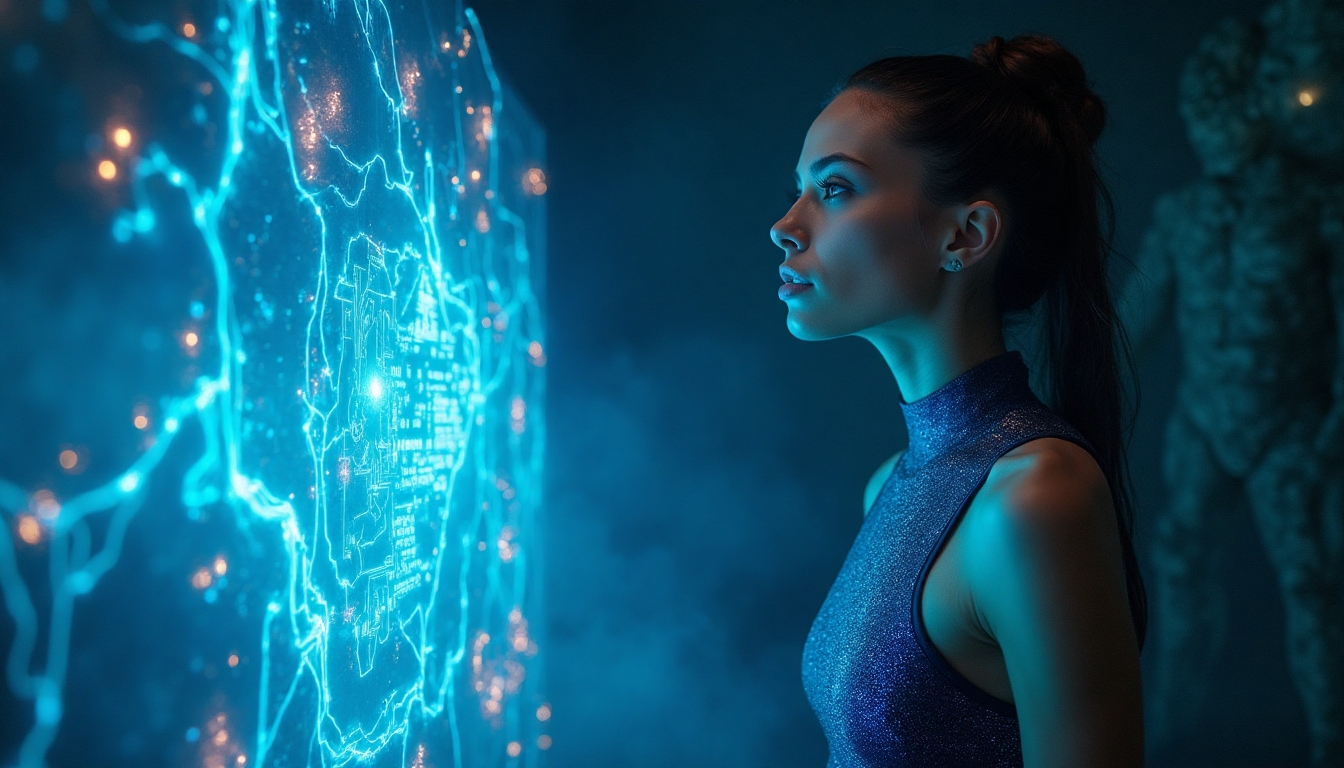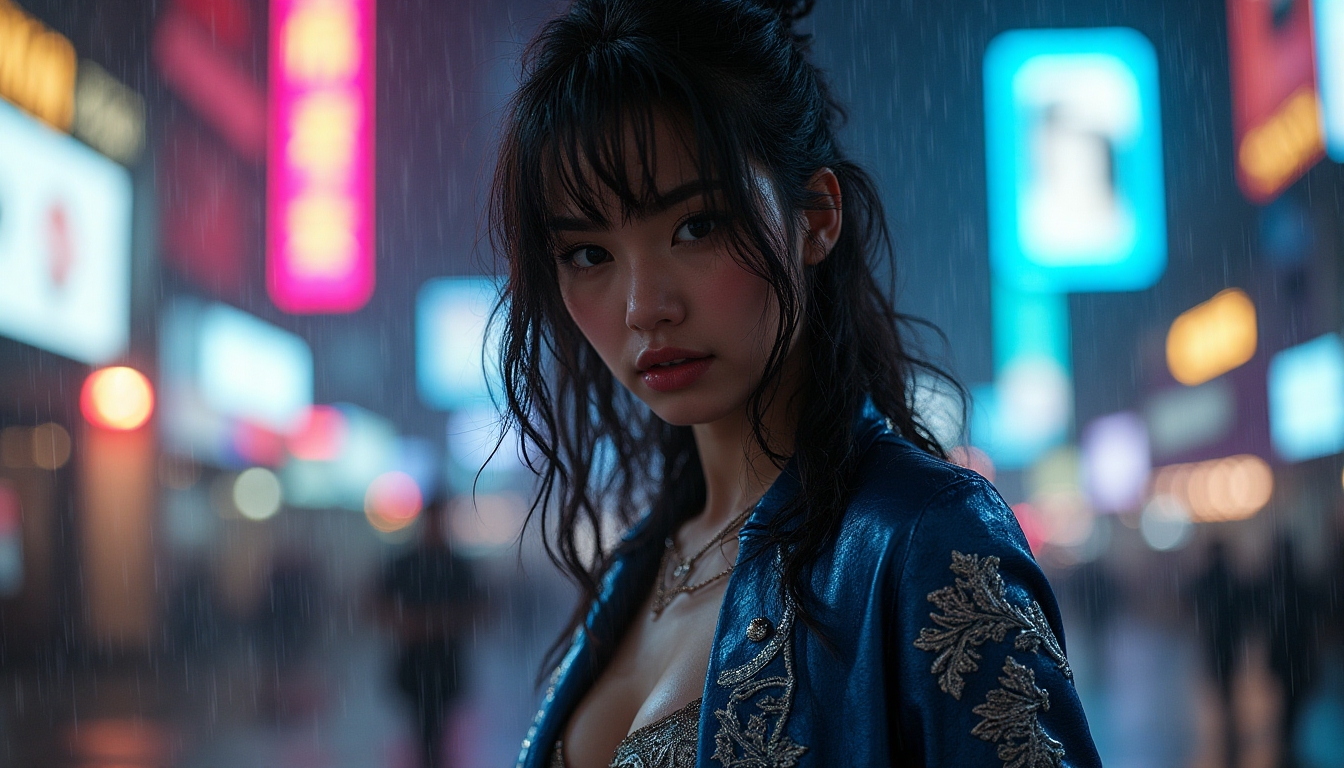The floodlights blared down on the steel-clad stage, illuminating the fierce determination etched into Mara’s features as she gripped the microphone, ready to confront the audience’s jeers. The annual "Perfect Match" reality TV show had reached its climax, and tonight was the night she would either reclaim her identity or dissolve under the pressure of a nation’s expectations. She wore a sleek, emerald-green dress reminiscent of 1960s elegance, the color reminiscent of her favorite childhood books—stories brimming with adventure and defiance. The fabric hugged her waist, its fitted silhouette a complete departure from the trends of the modern day, propelling her into another era, where women wore their strength boldly.
Mara’s journey hadn’t begun on the stage. It started in a quaint bookstore, where dusty volumes whispered tales of rebellion. She had long searched for the mantra that would define her. A decade ago, she’d burst onto the scene—an outspoken activist who tackled issues of cloning and identity. But after years of meticulously carving her image for the screens, she found herself trapped in a spectacle that blurred the lines of authenticity.
As she stood there amidst a cacophony of voices, her thoughts spiraled back to the night three years earlier when she first encountered the show's reality. That evening, she had stepped into a high-tech lab, a place teeming with researchers whipping up controversies about double standards in cloning—an ethics panel discussing the implications of creating "better" versions of ourselves. She had been invited to be the face of a documentary highlighting the struggle between aspiration and the pursuit of perfection. Her episodes had garnered attention, but behind the scenes, they had orchestrated a contrasting “Mara”—a digitally manipulated version, polished for ratings.
“Everyone wants to be cloned. No one likes their imperfect self,” she recalled the AI expert saying, part of the panel that night. Was she to forgive herself for wanting to be part of a show that critiqued the very nature of her existence? Tonight's episode, she pondered desperately, didn’t just lay bare her life but threatened to turn authenticity into a mere package for consumption.
“It’s all scripted,” whispered a voice in the crowd, and the words echoed in her mind. She clenched the microphone, feeling the coolness of metal drenching her palm. With each distraction, her resolve tightened. She remembered standing in front of the mirror for what felt like the thousandth time, her workers meticulously arranging her hair, including a glimmer of green highlights that smiled just like her dress. All smoke and mirrors, but these memories weren’t just her own; they belonged to the thousands of women who watched and wished they could wield a similar facade.
The audience before her wasn't just watching a reality show; they were complicit in a system that turned personal struggles into entertainment. She spotted familiar faces—her colleagues from the activist group, those who whispered words of encouragement. Their presence donned her with the courage she needed.
"Ladies and gentlemen, I've built my life around a lie!" she shouted, her voice slicing through the noise, reclaiming her narrative. "It’s not about being perfect. It’s about being real—embracing our flaws, our origins, and our stories!" The audience fell silent, the shift palpable, and she finally felt the true weight of her words sink into the atmosphere.
Images of her childhood flooded her consciousness: running through flower-filled fields, dreaming of worlds where stories didn't have to wrap up neatly in thirty minutes. There was beauty in chaos, in imperfections danced away in moments that could never be replicated.
In the pit of her stomach, uncertainty waged a battle against exhilaration. If she expressed her true self, would she be rejected by the very society she sought to enlighten? The world had grown numb to authenticity, masked under layers of curated perfection. But as she spoke, she envisaged crafting connections, reshaping narratives unwittingly shaped by the media. Each honest syllable chipped away at the facade, drawing the audience’s attention away from judgment and towards understanding.
Words cascaded from her lips like secrets penned in the back of a diary—raw, honest, and liberating. Mara felt her heart pulse in the cadence of defiance, grounded in her truth as cold comfort morphed into fiery spirit.
As the final moments of her speech unfolded, she felt the audience shift. Hearts opened, faces softened, and hands applauded this unrefined, flawed woman before them. With a glance at the camera, she smiled, knowing she had just reinvented her story—one that could spark a fire of questioning, reclaiming identity in the face of overwhelming pressures.
Ashes of doubt scattered into new beginnings, for Mara had grown through the detritus of others’ expectations and emerged—the wildflower in concrete—a testament to what it meant to be unapologetically oneself, perfectly unique and imperfectly perfect.
This narrative, almost fabricated but infinitely real, captivated a new audience, echoing through their minds long after the lights dimmed. They would not just see a reality star but a reflection of their quest for authenticity amidst cloning and perfection.
Genre: Psychological Thriller
The Source...check out the great article that inspired this amazing short story: AI and the Age of Cloning: Creating Perfect Copies of Yourself and Your Pets
Disclaimer: This article may contain affiliate links. If you click on these links and make a purchase, we may receive a commission at no additional cost to you. Our recommendations and reviews are always independent and objective, aiming to provide you with the best information and resources.
Get Exclusive Stories, Photos, Art & Offers - Subscribe Today!

























Post Comment
You must be logged in to post a comment.